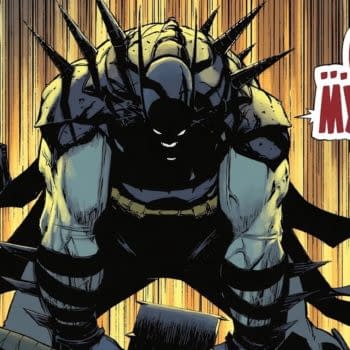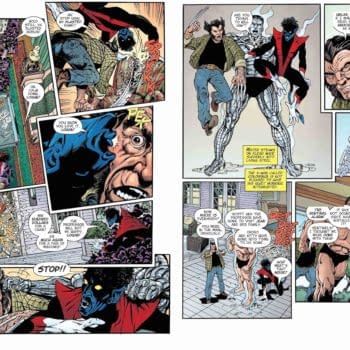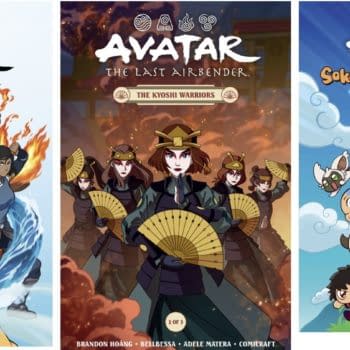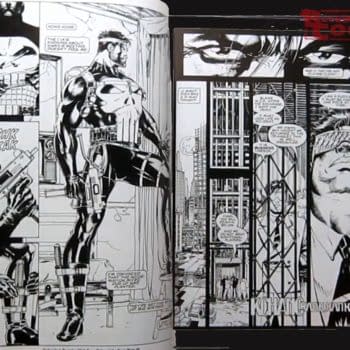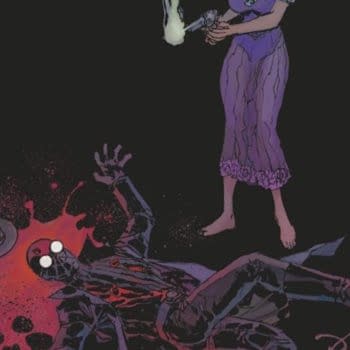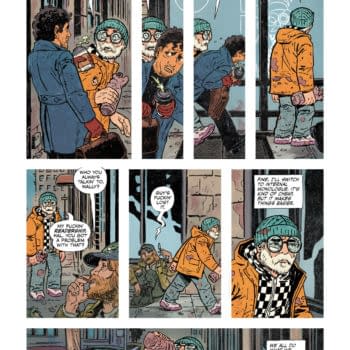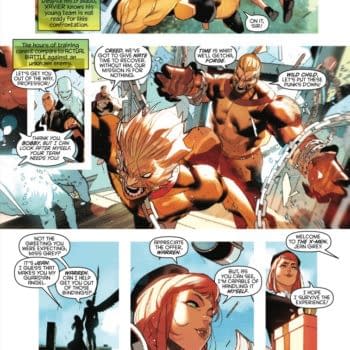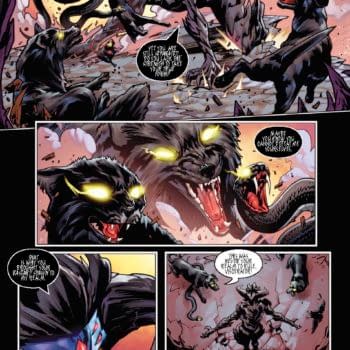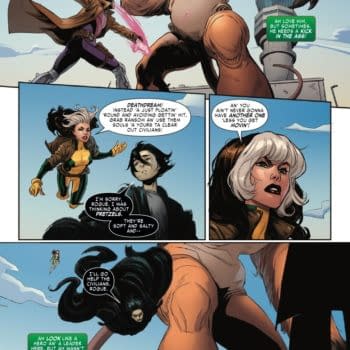Posted in: Comics | Tagged: comic con, Comics, eisners, san diego, sdcc
Countdown To The Eisners – Best Educational/Academic Work
When I heard that Dundee University in Scotland was offering a degree in Comics Studies, I practically booked a flight in the adjacent tab on my browser. It's nice seeing graphic novels in the university libraries and book stores now, for finally the medium is getting the respect it deserves in the academic settings. Anytime I can incorporate a comic book into an essay of mine, I take that chance and usually get rewarded as a result. Comics can be used as tools to teach, and students and teachers will usually jump at the opportunity to try a new teaching method. In my Psychology 101 class I gave the professor a copy of Captain America: Fallen Son to help illustrate the 5 stages of grief, and in my Advanced Shakespeare class I gave my professor a copy of Kill Shakespeare just because I thought he'd enjoy it (he did). I was even so embarrassed for my Memoir professor's limited knowledge of graphic memoirs that I got her a copy of My Friend Dahmer and Clumsy for her personal library (got to look out for the future students). Oh, and you can write entire academic papers and novels on the history, people, and characters in comics. Today I'll be focusing on the Best Educational/Academic Work category. If you need a reminder of what's been nominated, you can find the entire list right here, and see what I chose last time right here.
Keep in mind I cannot vote for who wins (nor can you, probably), as per the rules. However, that's not keeping me from being vocal regardless!
Who is not eligible to vote?
- Comics press or reviewers (unless they are nominees)
- Non-creative publisher staff members (PR, marketing, assistants, etc.)
- Fans
Before I get back to writing the biography of Rich so I can be eligible for next year, let the games begin!
Best Educational/Academic Work
Autobiographical Comics: Life Writing in Pictures, by Elisabeth El Refaie (University Press of Mississippi)
Graphic memoirs are a relatively recent thing, and in Autobiographical Comics author Elisabeth El Refaie explores the category and provides the key formal properties and narrative techniques of it. Strategies are given, examples of different works are shown, and familiar names of both comic creators and authors in literature are rampant throughout.
Comics Versus Art, by Bart Beaty (University of Toronto Press)
Review copy unavailable.
Crockett Johnson & Ruth Krauss: How an Unlikely Couple Found Love, Dodged the FBI, and Transformed Children's Literature, by Philip Nel (University Press of Mississippi)
While the title alone is quite the mouthful, this biography of both Crockett Johnson and Ruth Krauss is only denser on the inside. While the two were titans in children's literature back in the 1950s, unfortunately they are no longer household names in the present. This book follows their careers in intricate detail, overwhelming you with fascinating information on the two of them.
Lynda Barry: Girlhood Through the Looking Glass, by Susan E. Kirtley (University Press of Mississippi)
Focusing on the career of Lynda Barry in not only comics but in several other different mediums (theater, audio, painting), author Susan Kirtley does a great job highlighting one of the most fascinating and influential women in comics today. Concentrating on how Barry presents and writes women in her works, Kirtley presents us with a modern day master at her craft.
The Poetics of Slumberland, by Scott Bukatman (University of California Press)
Don't be fooled by the title, for while Bukatman frames the book around Little Nemo in Slumberland and all the artistic energy and imagination that derives from it in a medium that's constantly evolving, the book is also a celebration of comics in pop culture. Bukatman also makes some interesting points about animation and animated behaviors both in and out of the comics medium.
Who I think should win:
Autobiographical Comics: Life Writing in Pictures, by Elisabeth El Refaie (University Press of Mississippi)
If you're interested in writing a graphic memoir, want to know more about graphic memoirs, or want to simply know how the sausage is made, I highly recommend you check out Autobiographical Comics. Elisabeth El Refaie supplies a treasure-trove of information covering every base, while making it easy to understand for all readers.
While other books on the subject tackle the same three examples (Maus, Persepolis, Fun Home), El Refaie has studied and incorporated more than 80 different kinds of graphic memoirs into this book.
Who I think could win:
Crockett Johnson & Ruth Krauss: How an Unlikely Couple Found Love, Dodged the FBI, and Transformed Children's Literature, by Philip Nel (University Press of Mississippi)
Who would have thought that the creator of Harold and the Purple Crayon was at one point under investigation by the FBI? Apparently, letting your imagination run wild and creating universes of your own in a children's book was considered light-communism by some, especially in an age where the House of Un-American Activities Committee hearings were alive and well.
Filled with similar mesmerizing tales, Johnson and Krauss took the children's literature world by storm half a century ago, all exquisitely documented by Philip Nel. Also, great cover design by Chris Ware.
Who I think should have been nominated:
Mastering Comics, by Jessica Abel and Matt Madden (First Second)
While it's a textbook, it's one you actually want to open because you can learn so much from Abel and Madden, no matter how experienced or inexperienced you are. It's dense with information, examples, and technique that no matter what point you are in your cartooning career, it will help you advance to the next level.
Who do you think should win / been nominated?
Cameron Hatheway is the host of Cammy's Comic Corner and Arts & Entertainment Editor of the Sonoma State STAR. You can hire him to teach your class how to write a graphic memoir on Twitter @CamComicCorner.







